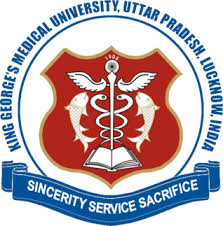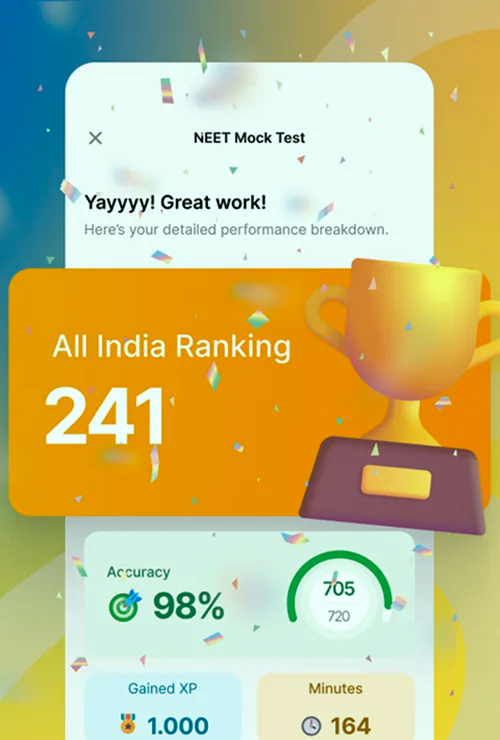General Information
King George's Medical University (KGMU) isn't just a university; it's a legacy. Established way back in 1911 as King George's Medical College, it's one of India's oldest and most prestigious public State Medical Universities. It was granted university status in 2002, solidifying its role as a premier institution for medical education, research, and patient care in Uttar Pradesh and beyond.
Its mission extends far beyond just awarding degrees. KGMU is dedicated to advancing medical knowledge, providing top-tier healthcare (especially to underserved populations), and training generations of skilled and ethical doctors, dentists, nurses, and allied health professionals. Its reputation is built on a century of service and academic rigor.
Key Recognitions:
Operates as a State University under the Government of Uttar Pradesh.
Fully recognized by the University Grants Commission (UGC) and the National Medical Commission (NMC). Its dental programs are approved by the DCI, and nursing by the INC.
It holds a top NAAC Accreditation grade, currently 'A+', reflecting its high standards.
MCI Recogination
Permitted for renewal of permission u/s 10(A) 2020-21, Permitted for Renewal of 100 seats for the academic year 2022-23. Permitted (4th renewal) 5th batch for the Academic Year 2023 -2024. Annual renewal permission granted for 100 MBBS seats for AY 2024-25
Campus Facilities
KGMU's campus is a landmark within Lucknow.
Location: Centrally located in the heart of Lucknow, Uttar Pradesh, making it easily accessible.
Campus Vibe: The campus exudes a sense of history with its iconic red-brick colonial architecture, sprawling lawns, and mature trees. While retaining its heritage charm, it integrates modern buildings and facilities required for contemporary medical education. It's a busy, bustling environment centered around patient care and academics.
Infrastructure & Facilities:
Iconic Buildings: Home to various departments, administrative offices, and the original college structure.
Advanced Learning Spaces: Modern lecture theatres with digital technology, well-equipped demonstration rooms, seminar halls, and dedicated examination halls.
Libraries: A large, historic Central Library plus departmental libraries, offering vast collections of medical books, journals (print and digital), and archives.
Laboratories: State-of-the-art labs for pre-clinical subjects (Anatomy, Physiology, Biochemistry), para-clinical (Pathology, Microbiology, Pharmacology), and clinical research. Advanced facilities like simulation labs for skill training are also present.
Museums: Notably, well-maintained museums (like Anatomy and Pathology) serve as valuable learning resources.
Auditoriums: Large auditoriums like the Brown Hall and Scientific Convention Centre host major academic and cultural events.
Sports & Recreation: While academics are intense, facilities for sports (like badminton, table tennis, potentially grounds for cricket/football) and a gymnasium are available.
Amenities: Bank branches, ATMs, post office, canteens, guest houses cater to the needs of students, faculty, and visitors.
Hospital & Medical Facilities
Leading tertiary care hospital attached to the institution
The hospital complex is the pulsating core of KGMU's existence.
Associated Hospital: Yes, KGMU operates a massive complex of associated teaching hospitals, collectively often referred to as King George's Medical University Hospital (including Gandhi Memorial & Associated Hospitals, Queen Mary's Hospital, Trauma Centre, and numerous specialty centers). It's one of the largest hospital setups in the country.
Scale & Patient Load: With a bed capacity running into the thousands (often cited as 4000+), KGMU handles an enormous volume of patients daily from across Uttar Pradesh and neighboring states. This immense patient load is both a challenge and an unparalleled learning opportunity.
Services & Specialties: It offers comprehensive services across virtually all medical and surgical specialties and super-specialties. Key facilities include:
Level 1 Trauma Centre: A major center for emergency and critical care.
Extensive Critical Care: Numerous ICUs catering to different needs (Medical, Surgical, Cardiac, Neuro, Peds, Neonatal).
Advanced Diagnostics: High-end radiology (multiple MRIs, CTs), pathology, microbiology labs.
Modern Operation Theatres: Catering to all surgical branches.
Specialized Centers: Dedicated centers for Cardiology, Neurology, Oncology, Organ Transplant, Psychiatry, Obstetrics & Gynaecology (Queen Mary's), Pediatrics, and much more.
OPD & IPD: Handles a massive number of outpatients and inpatients daily.
Educational Engine: This vast clinical setup is the primary training ground for KGMU's MBBS, BDS, MD/MS, MDS, Nursing, and Paramedical students. The sheer variety and volume of cases provide unmatched clinical exposure.
Fee Structure
State University Affordability
| Course Area | Quota Category | Approximate Annual Tuition Fee Range |
| MBBS | State Quota / AIQ | Very Low, ~ ₹50,000 - ₹60,000 |
| BDS | State Quota / AIQ | Very Low, ~ ₹40,000 - ₹50,000 |
| MD/MS | State Quota / AIQ | Low (compared to private), ~ ₹70,000 - ₹1,20,000 (varies by bond/stipend rules) |
| MDS | State Quota / AIQ | Low (compared to private), ~ ₹70,000 - ₹1,20,000 (varies by bond/stipend rules) |
| DM/M.Ch | State Quota / AIQ | Similar range to MD/MS |
| B.Sc. Nursing | State Quota | Very Low, ~ ₹30,000 - ₹40,000 |
| Paramedical (UG) | State Quota | Low, ~ ₹40,000 - ₹60,000 |
| Other Charges | All | Hostel, Mess, Exam Fees, Security Deposit (Refundable), University Dev. Fees are extra. |
| Authoritative Source | All | KGMU Official Website (Fee Section) & UP DGME Counselling Notifications. |
City Details
Hostel & Mess
KGMU provides extensive on-campus residential facilities steeped in history.
Availability: Yes, numerous separate hostels for undergraduate (MBBS/BDS), postgraduate (MD/MS/MDS residents), nursing students, and interns (boys and girls) are spread across the campus. Accommodation is generally provided to most admitted students, especially in UG courses.
Hostel Vibe: Many hostels are historic buildings with unique character, offering a strong sense of community. Rooms are typically furnished on a shared basis (double or triple occupancy is common for UGs, single rooms often for PGs).
Facilities: Standard amenities include basic furniture, common rooms, mess halls, security, warden supervision, and sometimes sports/reading room facilities within the hostel complex.
Mess: Each major hostel block usually has its own mess, providing regular meals. The food quality is typical of large government institution messes, catering to a large and diverse student body.
Cost: Hostel and mess fees are highly subsidized due to the government nature of the institution. The combined annual cost is very affordable, likely falling in the ₹20,000 - ₹40,000 range (needs confirmation from hostel office), making it significantly cheaper than private options.
Miscellaneous
Admissions & Career Trajectories: The Path Through KGMU
Getting Admitted:
MBBS / BDS: Admission is exclusively based on NEET-UG rank. KGMU is highly competitive. Seat allotment is done via centralized counselling: 15% seats through All India Quota (AIQ) counselling by MCC, and 85% seats through UP State Quota counselling by DGME, UP.
MD / MS / MDS / DM / M.Ch: Admission is strictly based on ranks in NEET-PG / NEET-MDS / NEET-SS. Counselling is conducted by MCC (for 50% AIQ seats) and UP DGME (for 50% State Quota seats).
Nursing (B.Sc., etc.): Admission is likely through the CNET (Common Nursing Entrance Test) conducted by ABVMU, Lucknow, followed by ABVMU's counselling, as KGMU Nursing college falls under ABVMU's academic jurisdiction for degree awarding now. (Verify this specific point via latest CNET brochure).
Paramedical Courses: Admissions might be through CPET (conducted by ABVMU) or potentially KGMU's own process based on merit/entrance test. Check KGMU's official admission notification.
Life After KGMU (Career Paths):
Internship: A mandatory one-year rotating internship within the KGMU hospital complex follows the final MBBS/BDS exams.
Postgraduation: A vast majority of KGMU graduates aim for and secure postgraduate seats (MD/MS/MDS) through NEET-PG/MDS, often within KGMU itself or other top institutions nationally/internationally.
Clinical Practice/Service: Graduates are highly sought after for positions in government health services (like Provincial Medical Services - PMS), defense services, corporate hospitals, or establishing private practice. KGMU alumni hold leading positions in healthcare across India and globally. Direct "campus placement" drives are less common for doctors/dentists compared to PG entrance and practice pathways.
Information for NRI Candidates
Regarding admissions for Non-Resident Indian (NRI) students:
General Policy for Government Colleges: Premier State Government Medical Colleges in Uttar Pradesh, like KGMU, typically do not have a reserved quota for NRI candidates for MBBS or BDS seats. Their seats are filled strictly through the All India Quota (MCC) and the UP State Quota (DGME), based on NEET-UG ranks and standard reservation policies.
Supernumerary Seats/Other Schemes: While direct NRI quotas are generally absent, government regulations sometimes allow for a small number of supernumerary seats for specific categories like foreign nationals sponsored by the Government of India (e.g., through ICCR scholarships) or potentially children of personnel in Indian missions abroad. These are highly specific and limited, not a general NRI quota.
Recommendation: If you are an NRI candidate aspiring for KGMU, your primary route is to secure a high rank in NEET-UG and compete for seats through the All India Quota (AIQ) counselling conducted by MCC. There isn't usually a separate, lower-rank pathway or specific fee structure for NRIs at KGMU like in private or deemed universities. For absolute certainty, check the latest MCC and UP DGME counselling brochures or contact KGMU's admission office.
Collage Images Gallery
Facilities & Campus Life
Well-equipped Library
Experienced Faculty
Computer Lab
Sports Activities
Heritage Campus
Frequently Asked Questions
Why Consult With Us?
- 15+ years of experience in medical education counseling
- 5000+ students successfully guided
- 50+ partner universities worldwide
- Free initial consultation with no obligation














